1985: When Father Was Away On Business (Emir Kusturica)
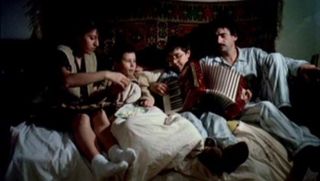
Through the young eyes of Malik, the 1950s-set period piece portrays Yugoslavia as it enters the Cold War. The six-year-olds faux-naif POV shows glimpses of a paranoid neighbourhood, struggling with poverty, and slowly dwindling as residents with unpopular political views are sent to prison. When the boys father disappears, the mother informs her son that hes away on business. However, a further twist awaits.
1986: The Mission (Roland Joff)
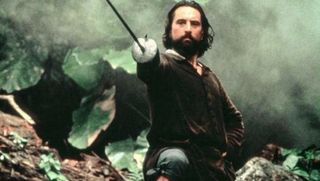
Robert De Niro led another Palme dOr winner, this time in a 1750s South African jungle as slave hunter Rodrigo Mendoza. Upon meeting a travelling priest played by Jeremy Irons, he becomes a Jesuit and joins the mission but both become embroiled in a battle when Spain sells the colony to Portugal, who wish to enslave the locals.
1987: Under The Sun Of Satan (Maurice Pialat)

Grard Depardieu, in his third collaboration with Pialat, is a self-doubting priest burdened with guilt, desire, and a tumultuous relationship with Sandrine Bonnaire (playing Mouchette, slyly hinting at Bressons classic of the same name). Pialats famously long takes delve into more disturbing territory than A Nos Amours, and feature a horse dealer who turns out to be Satan. Be wary of buying that horse.
1988: Pelle The Conqueror (Bille August)
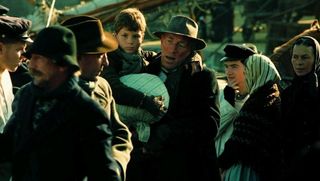
Born to play the title role, 11-year-old actor Pelle Hvenegaard was named by his parents after the 1910 novel upon which the Danish film is based. Co-starring with Max von Sydow, the duo depict a father and son hopping on a boat from Sweden to Denmark in search of a new life to overcome a family death. However, despite landing jobs on a farm, the pair are discriminated for their low social standing, and start to wonder if they made the right choice.
1989: Sex, Lies, And Videotape (Steven Soderbergh)
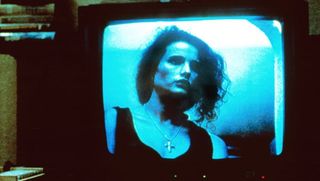
Soderberghs debut, a rapidly cut psychosexual drama, introduced the prolific director to an international stage. James Spader ups the sleaze factor as a VHS collector these tapes contain footage of women confessing their sexual desires to the camera. Andie MacDowell (not yet a romcom icon) is taken aback to say the least, but like the audience, is drawn to the suspicion that Spader has more emotional motivations. Videotapes hey, its 1989.
1990: Wild At Heart (David Lynch)
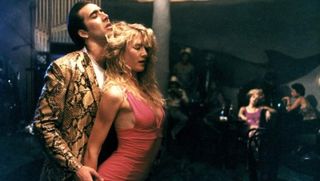
In an iconic snakeskin jacket, Nicolas Cage along with Laura Dern doesnt hold back in a typically surreal David Lynch joint that throws in Wizard Of Oz hallucinations just because it can. The couple become a madcap Bonnie and Clyde, botching a robbery and finding romance in their run from the law. Lynch temporarily excused himself from Twin Peaks to shoot Wild At Heart, a move causing friction with the shows staff, and he threw in a small cameo for Audrey Horne as a car crash victim.
1991: Barton Fink (Ethan Coen, Joel Coen)
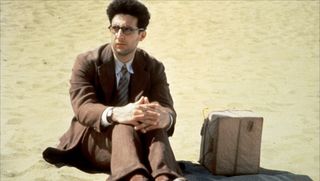
Making it three American winners in a row, Barton Fink was a screenwriters nightmare: specifically for John Turturro as a Hollywood scribe with writers block, an inability to comprehend the common man, and a hotel room thats possibly halfway to Hell. The Coen brothers partially based the script on their own experience (presumably not the murder stuff or John Goodmans demonic powers) when struggling to finish a draft of Millers Crossing.
Sign up to the GamesRadar+ Newsletter
Weekly digests, tales from the communities you love, and more
1992: The Best Intentions (Bille August)
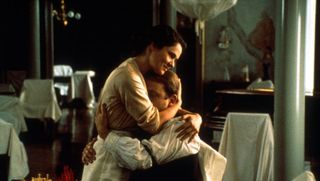
Bille August scooped the trophy for the second time in four years, this time with the assistance of a script from Ingmar Bergman. Cut down from a six-hour TV series, the Danish drama loosely depicts how Bergmans parents met, married, and gave birth to a child who grew up to be youll never guess Bergman himself. For August, it was a great responsibility, for which he brought along Bergman regulars Max von Sydow and Pernilla August to play the parents.
1993: Farewell My Concubine (Chen Kaige), The Piano (Jane Campion)
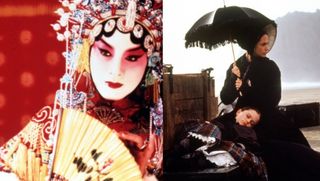
In Farewell My Concubine, the decades leading up to and including Chinas Cultural Revolution are witnessed by two opera singers played by Leslie Cheung and Zhang Fengyi. Kaiges drama is the only Chinese-language entry to pick up the Palme dOr, and The Piano is shockingly the only winner with a female director. Jane Campions period piece follows Holly Hunter and Anna Paquin as a mother/daughter duo moving from Scotland to New Zealand with plenty of problems and a piano.
1994: Pulp Fiction (Quentin Tarantino)
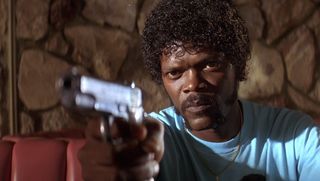
Samuel L. Jacksons explanation of a Royale with cheese to John Travolta might not have worked so well to a French audience, but Pulp Fiction a non-chronological amalgamation of pop culture riffs, loquacious criminals, and Bruce Willis risking his life for a watch went down a storm. It also caused a storm at the awards ceremony when Tarantino stepped up for his acceptance speech and gave the middle finger to a heckler in the crowd.
Most Popular


